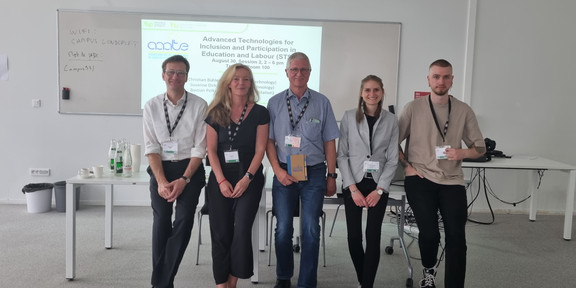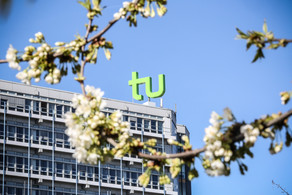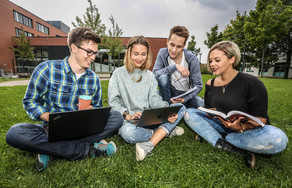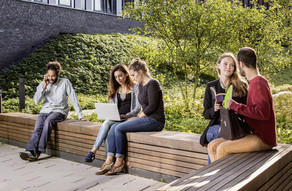Five TU researchers present research results at conference
- News
- Fakultät

Every two years, the "17th International Conference of the Association for the Advancement of Assistive Technology in Europe (AAATE)" is dedicated to technologies for strengthening the participation and inclusion of people with impairments. Five researchers from Faculties 13 and 17 were able to place a total of four thematic presentation sessions and five papers at the international conference in Paris.
Prof. Christian Bühler (FK13), Vertr.-Prof. Dr. Bastian Pelka (FK17) and Dr. Susanne Dirks (FK13) moderated two sessions with a total of fourteen presentations on the topics "Cognitive Disabilities and Accessibility" and "Advanced Technologies for Inclusion and Participation in Education and Labour". These highlighted a wide range of both potential solutions for improving participation and barriers that vary widely internationally. For example, the topics of the papers ranged from telemedicine care in large rural areas to specific assistive technologies for video game use.
In the presentation "Using Persona Scenarios to Raise Acceptance of Digital Tools in Social Organizations - Introducing the Easy Reading Framework", Vetr.-Prof. Dr. Bastian Pelka (FK13/17) presented results from Dr. Vanessa Heitplatz (FK 13/17), Leevke Wilkens (FK13); Marie-Christin Lueg (FK17); Bastian Pelka and Susanne Dirks on the use of the persona method for the development of a software framework for accessible website display. The results were developed in the BMBF-funded project "EVE4all".
In the session "How to Train People with Disabilities Across Europe to Provide Feedback on Web Accessibility Issues" Susanne Dirks, Lukas Baumann (FK13) and Peter Kemeny (Funka Nu, Sweden) presented to the participants a model curriculum for training people with disabilities on the feedback mechanism of the Web Accessibility Directive. The focus of the session was to discuss together with the participants how to adapt the curriculum to the different circumstances in the different European member states.
Under the title "Cognitive Accessibility of Indoor Navigation Apps" Susanne Dirks presented the results of an evaluation study she conducted with her colleague Jonathan Dees. Together with a group of people with cognitive impairments, the city hall app Bochum (contagt app) was examined for its accessibility and usability for this target group in a field study.
Ann Christin Schulz (FK17) and Bastian Pelka presented "Strengthening the Inclusiveness in Citizen Science to Improve the Participation of People with Disabilities", a methodological approach to include people with disabilities in Citizen Science projects.
Lukas Baumann discussed in his presentation "Involving, empowering, and training end users with disabilities to fully participate in the Web Accessibility Directive objectives. First Results from the UPowerWAD Project" results from the research on the implementation and challenges in the context of the feedback mechanism of the Web Accessibility Directive. These were developed together with international project partners in the ERASMUS+ funded project "UPowerWAD".
During the closing ceremony of the conference, Prof.Christian was awarded the "aaate diamond award" for his outstanding work in the field of Assistive Technology. (See separate report)
Conference homepage: https://aaate2023.eu/
Book of Abstracts: https://aaate2023.eu/wp-content/uploads/sites/26/2023/08/BookOfAbstracts-Prelim.pdf




